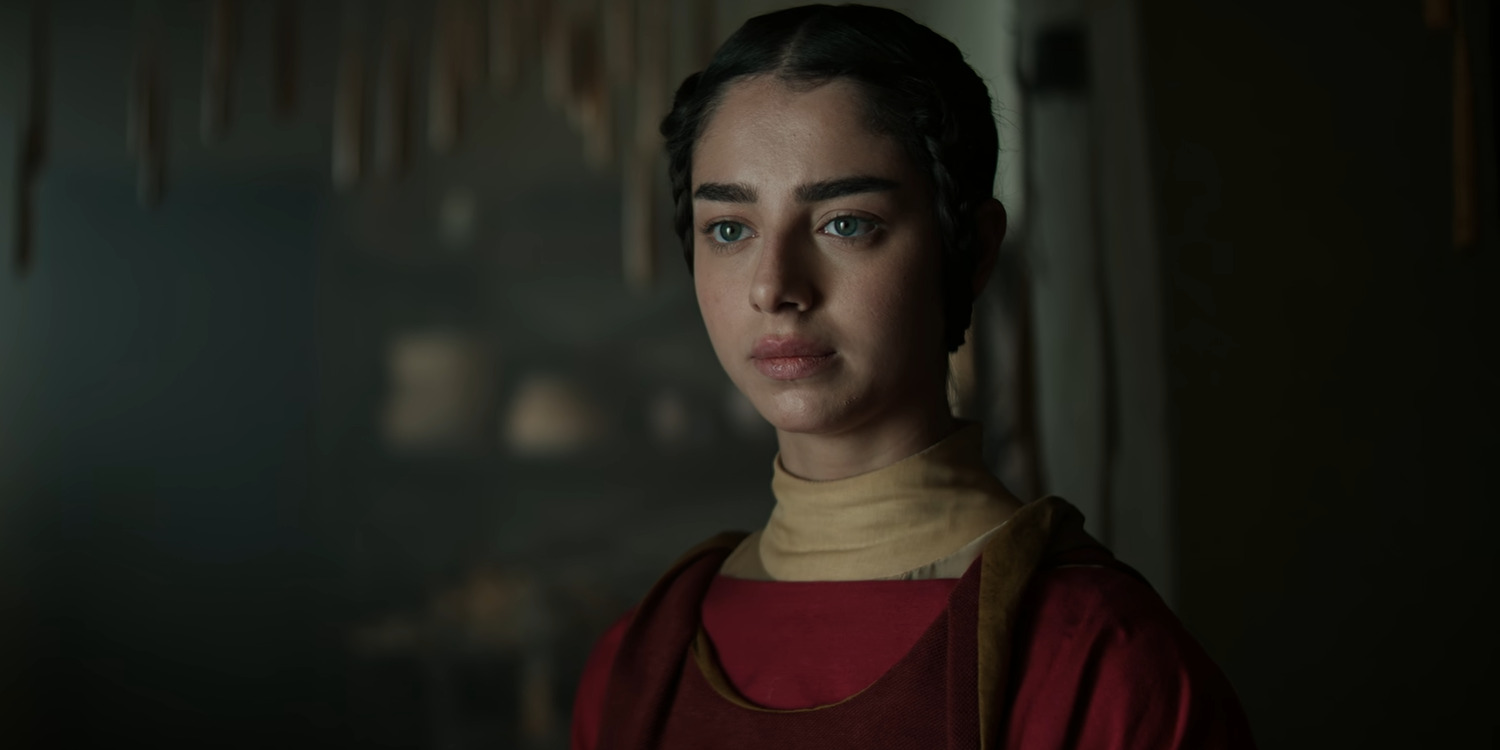‘Mary’ is a drama film that revolves around the story of Mary of Nazareth, the mother of Jesus Christ. Directed by D.J. Caruso, the movie takes on a coming-of-age approach to this biblical tale, following the life of Mary from a young age. Her parents, Joachim and Anne, knew their daughter was one of God’s chosen after Archangel Gabriel paid them a visit before Mary’s birth. As a result, their daughter is promised to God from a young age as she becomes a Temple Virgin in Jerusalem.
However, years later, news of her immaculate conception and rumors of a prophesied savior emerge. Thus, Mary and her betrothed, Joseph, earn a target on their back from not only their community but also the Roman-Jewish king, Herod. ‘Mary’ is a riveting story about one of the most celebrated figures in Christianity. Its unique depiction of the Nativity tale — a well-known narrative — divulges a largely unexplored background behind Jesus Christ’s birth. As such, the story’s off-screen origins easily captivate.
Mary is a Powerful Exploration of The New Testament
‘Mary’ spans 17 BC to 1 AD, presenting a historical story based on the New Testament. For the most part, it follows the Biblical canon, interpreting and presenting Mary of Nazreth’s tale in an authentic yet modern light. The film casts the titular Mary, the mother of Jesus, as the central figure whose life remains consecrated from birth. As such, even the less well-known aspects of Mary’s life, such as her parent’s struggle with conception and her time at the Jerusalem Temple, are put center stage in this on-screen narrative. Therefore, it remains evident that filmmaker D.J. Caruso and screenwriter Timothy Michael Hayes were devoted to adapting an authentic and realistic story about the biblical figure.

Even so, it inevitably ends up sporting certain feats of fictionalization. Since Mary’s cinematic adventures require a certain level of heightened drama and romanticization, a few instances from her journey seem to have been fabricated in service of the film. For instance, there isn’t much to support her “love at first sight” moment with Joseph by the riverside, either in biblical texts or historical social conventions of the time. Similarly, some of her time in the Jerusalem Temple, including her intense expulsion, is also a creative liberty undertaken by the filmmaker alongside Joachim’s sacrificial death. Therefore, even though the story has clear roots in biblical tales, it also sports some unique fictitious elements.
D.J. Caruso Consulted Experts to Ensure Biblical Accuracy
Even with the minor departures that ‘Mary’ takes with historical and religious accounts of the time, it largely strives for a biblically accurate depiction of Mother Mary’s story. For the same reason, the creative team on the project—including screenwriter Timothy Michael Hayes— conferred with numerous experts. Notably, Hayes and D.J. Caruso focused on employing religious leaders and scholars to infuse their project with realism in relation to its biblical themes. This includes consultation with leaders of multiple religions, including Christianity, Judaism, and Islam, to ensure authenticity to the ethnically diverse region of Nazareth.

Furthermore, David G. O’Connell, the former bishop of the Archdiocese of Los Angeles and Caruso’s friend, served as a spiritual advisor for the project. The director has shared O’Connell’s treasured advice to highlight the character of Joseph in the story. Thus, throughout the many rewrites, the film maintained its dedication to presenting a thematically and factually authentic version of Mother Mary. Caruso spoke about this in a conversation with the National Catholic Register, explaining his decision to maintain a strong string of connections between the project and Christian theology.
“I think it was important because I’m going to come from our strong Catholic perspective, and I’m always going to try to do that,” said Caruso. “I guess it’s always going to be controversial, but I wanted Mary to be accessible to everybody who loves her, everyone who can accept her and (venerate) her. Obviously, we (venerate) her in a way that others might not.” Still, the film doesn’t alienate others and adopts a universally relatable and resonant perspective on Mary’s experiences.

The casting of Noa Cohen for the role plays a significant part in the same. The actress’ young deposition conveys the youth and strength of the character. Consequently, the audience gets to connect with the biblical figures—stereotypically presented in a motherly light—in a new, refreshing, yet accurate way. Moreover, Cohen’s Israeli ethnicity was an instrumental factor for Caruso, who wanted to cast actors from Israel, considering that to be the ethnically accurate route for his characters. “It was important to us that Mary, along with most of our primary cast, be selected from Israel to ensure authenticity,” the director told Entertainment Weekly. This resulted in some controversy since many believe Mary and Joseph to be ethnically Palestinians. Nonetheless, outside of these conversations, Cohen’s striking performance furthers the audience’s relationship with her version of Mother Mary.
Read More: Where was Netflix’s Mary Filmed?


You must be logged in to post a comment.